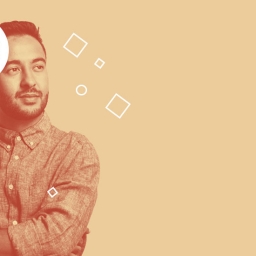You’re not done. You thought when you made it through high school it was over or maybe when you got your college degree. Some of you took it even further and went all the way through a Masters and some a PHD. But no matter how much formal education you acquired, you’re never done learning. Once you realize that, you can develop continuous learning skills and use them to benefit your career.
There are those born with a curiosity that motivates them to learn more, but even if you’re not one of those people, you can make it a part of your life. If it doesn’t come naturally, choose to take the time to schedule it in. In truth we all are learning constantly through experience, it can’t be avoided. But to develop the skills of continuous learning is a little different.
What Continuous Learning Means
Continuous learning is self-motivated and persistent. It involves developing critical thinking skills, knowledge and competencies so you can expand your expertise and develop potential opportunities. It helps your professional development to adapt to new technologies and grow your responsibilities. There are a few things to remember:
1. Stay relevant
In every industry change is a given. In some careers change is slow, but still there. In others it is a constant factor to be dealt with. You need to be at the front of changes and trends and take the opportunity to learn and prove you are valuable.
2. Prepare for the Future
Staying on top of continuous learning can help you transition when changes come. Those changes could be promotions, losing your job or other opportunities. Whatever the change, use the opportunity to learn and promote your learning.
3. They can see you
People notice if you’re a continual learner. Your colleagues may turn to you for advice or answers, your superiors can see your growth. This visibility provides opportunities to progress and learn even more.
4. Be confident
Competence leads to confidence (and rhymes!). The more you learn, the more your feeling of accomplishment grows and improves your confidence. With confidence you can take on new challenges and opportunities.
5. New ideas
Learning can help you think of new ideas and creative ways to problem solve. Being innovative is important in any industry.
6. Look through new eyes
You become more open minded and your perspective is enhanced when you invest in continuous learning. Gaining understanding and empathy for others experiences and knowledge adds to yours.
Resources
So you’ve decided you want to apply continuous learning in your life, what resources do you need? A great benefit technology has brought us is the many different ways it provides for us to absorb information. New platforms have been invented and the resources we have access to, are never ending. Some ways people find they learn best is by reading or critiquing and analyzing, others through demonstrations or interacting, some from watching videos and still others by listening to talks or podcasts. Focusing on the ways you learn you can use resources such as:
- magazines, books, newspapers, online articles, blogs and newsletters
- case studies, surveys, polling and research studies
- interact with others through Skype, social media or email
- attend classes, speeches, events and tradeshows
- listen to podcasts
- watch videos from experts or organizations like TED
- use MOOCS (Massively Open Online Courses) free or paid, from websites, publications, educational institutions or companies
All these types of resources can be accessed from home, through your employer, your educational organization or public institutions like libraries or governments. You have endless choices of both topics and ways to learn.
But remember the important thing is not where you start but that you do. You can follow your interests and talents or start where you feel you’re lacking abilities. It’s all up to you!
Follow us on social to learn how to develop other skills to benefit your career and your life.








